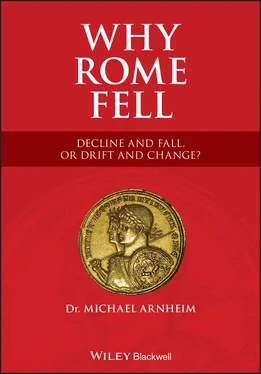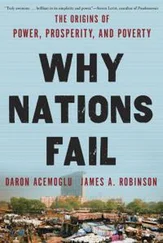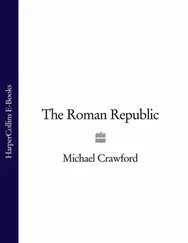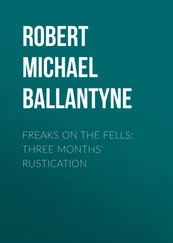Michael Arnheim - Why Rome Fell
Здесь есть возможность читать онлайн «Michael Arnheim - Why Rome Fell» — ознакомительный отрывок электронной книги совершенно бесплатно, а после прочтения отрывка купить полную версию. В некоторых случаях можно слушать аудио, скачать через торрент в формате fb2 и присутствует краткое содержание. Жанр: unrecognised, на английском языке. Описание произведения, (предисловие) а так же отзывы посетителей доступны на портале библиотеки ЛибКат.
- Название:Why Rome Fell
- Автор:
- Жанр:
- Год:неизвестен
- ISBN:нет данных
- Рейтинг книги:3 / 5. Голосов: 1
-
Избранное:Добавить в избранное
- Отзывы:
-
Ваша оценка:
- 60
- 1
- 2
- 3
- 4
- 5
Why Rome Fell: краткое содержание, описание и аннотация
Предлагаем к чтению аннотацию, описание, краткое содержание или предисловие (зависит от того, что написал сам автор книги «Why Rome Fell»). Если вы не нашли необходимую информацию о книге — напишите в комментариях, мы постараемся отыскать её.
Why Rome Fell: Decline and Fall, or Drift and Change?
Why Rome Fell
Why Rome Fell
Why Rome Fell — читать онлайн ознакомительный отрывок
Ниже представлен текст книги, разбитый по страницам. Система сохранения места последней прочитанной страницы, позволяет с удобством читать онлайн бесплатно книгу «Why Rome Fell», без необходимости каждый раз заново искать на чём Вы остановились. Поставьте закладку, и сможете в любой момент перейти на страницу, на которой закончили чтение.
Интервал:
Закладка:
Envoi: Augustus v. Alexander
ἀκούσας δὲ ὅτι Ἀλέξανδρος δύο καὶ τριάκοντα γεγονὼς ἔτη κατεστραμμένος τὰ πλεῖστα διηπόρει τί ποιήσει τὸν λοιπὸν χρόνον, ἐθαύμαζεν εἰ μὴ μεῖζον Ἀλέξανδρος ἔργον ἡγεῖτο τοῦ κτήσασθαι τὴν ἡγεμονίαν τὸ διατάξαι τὴν ὑπάρχουσαν. [p. 234]
“Hearing that, after accomplishing most of his conquests by the age of thirty-two, Alexander was at a loss what to do for the rest of his life, Augustus expressed surprise that Alexander did not regard it as a greater achievement to stabilize the empire which he had won than to win it.” (Plutarch, Regum et imperatorum apothegmata , Frank Cole Babbitt, 1931, p. 235, translated by M. Arnheim.)
The above passage comes from a collection of aphorisms or sayings of a variety of kings and emperors published by the prolific Greek biographer and essayist, Plutarch, probably in around 100, or about a century after the time of Augustus.
A neat contrast is drawn here between Alexander the Great (356–323 BCE), a military man obsessed with conquest, and Augustus, portrayed as a statesmanlike ruler, administrator and planner. Whether Augustus ever did comment on Alexander in this way is open to doubt. But, as they say in Italian, Se non è vero, è ben trovato (If it’s not true, it’s at least plausible). The contrast between the two men is certainly striking. By the age of 32, Alexander had conquered most of the known world, but he showed no interest in organizing his empire, and on his death soon after, it was split up among his generals. At 32, Augustus (63 BCE–14 CE) had just emerged as the victor of Actium and was about to embark on one of the most ambitious and enduring governmental or administrative feats ever achieved anywhere.
Nobody has ever accused Alexander of being a democrat (as far as I know, not yet, anyway!), and it is significant that, in Plutarch’s probably fictitious little vignette, Augustus speaks as a ruler in complete control of his empire. There is none of the propagandistic double-talk that we find in his masterly autobiography discussed above. Yet, it is to his acumen and thoroughgoing, unblinking analytical understanding of the true countervailing forces at work in the power structure of his dominions that his success is attributable, making him perhaps the most effective ruler of all time, who was able not only to consolidate a stable regime for his own lifetime across the whole Mediterranean basin, but also to guarantee its survival for another 300 years.
The Roman Republic as “Direct Democracy”
Until Augustus’s accession, the power structure of Roman history conformed to a general pattern shared by many other states, namely monarchy succeeded by oligarchy (minority rule) or aristocracy (hereditary minority rule), minority rule being the “default” form of government throughout history. Some modern writers on the Roman Republic, as we have seen, have managed to misunderstand this whole process, first, by dismissing much of the earlier evidence out of hand and then by going to the other extreme and uncritically accepting a passage of Polybius taken out of context as indicating that the Republic could possibly be regarded as a direct democracy, which is the exact opposite of the true situation.
Seeing the Roman Republic as at all democratic gives one a completely false impression of what it was like. But, as we have seen, modern writers who take this view of the Republic tend to compound their error by also adopting too uncritical a reading of Augustus’s autobiography and misinterpreting that regime as democratic to some extent as well, a view which is wide of the mark, to say the least.
The Roman Revolution
As discussed above, Sir Ronald Syme, the author of the magisterial and aptly named The Roman Revolution on Augustus’s rise to power, was well aware that the new regime was a monarchy, but his focus on the prosopography of the senatorial aristocracy led him into a blind alley: “A monarchy rules through an oligarchy.” (Syme 1939, p. 8.) He continues: “In all ages, whatever the form and name of government or whatever may be the name and theory of the constitution, be it monarchy, republic, or democracy, an oligarchy lurks behind the façade.” (Syme 1939, 7, 15.) Identifying monarchy with its diametric opposite, oligarchy, in this sweeping assertion is a serious logical category error.
“The First Emperor”
The section in Mary Beard’s SPQR headed “The first emperor” is not about Augustus or even Julius Caesar, but Pompey. “Pompey,” we read, “…has a good claim to be called the first Roman emperor.” (Beard 2016, p. 273.) We are then treated to a catalogue of the honors and accolades showered upon Pompey. By the middle of the first century BCE, we are told, the stakes and “…the resources of cash and manpower available (were) so much larger that the rise of men such as Pompey was more or less unstoppable.” (Ibid., p. 277.) Beard seems to assume that, had Julius Caesar not got the better of Pompey, he might have ended up in a monarchical role himself. There is very little evidence to back up this assumption. Unlike Caesar, Pompey certainly never identified with any particular political tendency. He was essentially a military man and a very good one too, it would seem. He was essentially an equal opportunity narcissist, happy to accept triumphs, honors, and kudos from any source. But did he really want to rule over Rome as a monarch, and would he even have known what to do had he been placed in that position? Elected consul in 70 BCE, Pompey promised to disband his army after his second triumph, and he kept his word though he could have seized power instead had he so wished. And, when as consul he had to preside over the Senate, such was his ignorance of the procedure that he had to ask a friend to jot down some pointers for his benefit. Much later, in 52 BCE, when he was made sole consul in the Optimate interest, Pompey asked the arch-conservative Cato the Younger to share power with him and advise him, which Cato agreed to do, but only in a private capacity (Plutarch, Pompey, 54; Cato the Younger, 47–49). And Pompey then brought his father-in-law in as his colleague for the last five months of his consulship.
In short, there is really no reason to believe that Pompey was aiming to become the first emperor. But it is not surprising that writers of largely narrative history, with inevitable concentration on individuals, should place undue emphasis on them at the expense of the bigger picture.
An even more egregious example of this tendency than in regard to Pompey is Mary Beard’s similar assumption about the coins issued by the conspirator Marcus Brutus: “The portrayal of a living person on a Roman coin was taken as a sign of autocratic power.” (Beard, p. 295.) In fact, however, as pointed out above, Brutus’s coinage was so replete with traditional republican, aristocratic, and anti-monarchical symbolism as to make it inconceivable that he was aiming at “autocratic power” for himself.
2 Diocletian Hammer of the Aristocracy
The Emperor Septimius Severus (r. 193–211) is famously said to have advised his two sons, Caracalla and Geta, shortly before his death: “Be harmonious (between yourselves), enrich the soldiers, scorn all others.” (Cassius Dio, 77.15). Caracalla soon got rid of his brother and behaved arrogantly toward most other people though, in 212, by the Constitutio Antoniniana , he extended Roman citizenship to all free male inhabitants of the empire. As his father had advised, his main concern was the army though his extension of citizenship actually had a detrimental effect on military recruitment. The army was made up of legions, recruited from Roman citizens, and auxilia , drawn from peregrini , non-citizen provincials, who became citizens automatically after twenty-five years’ service. After 212, however, there was no longer any incentive for peregrini to enlist, and more “barbarians” were recruited than ever before.
Читать дальшеИнтервал:
Закладка:
Похожие книги на «Why Rome Fell»
Представляем Вашему вниманию похожие книги на «Why Rome Fell» списком для выбора. Мы отобрали схожую по названию и смыслу литературу в надежде предоставить читателям больше вариантов отыскать новые, интересные, ещё непрочитанные произведения.
Обсуждение, отзывы о книге «Why Rome Fell» и просто собственные мнения читателей. Оставьте ваши комментарии, напишите, что Вы думаете о произведении, его смысле или главных героях. Укажите что конкретно понравилось, а что нет, и почему Вы так считаете.












